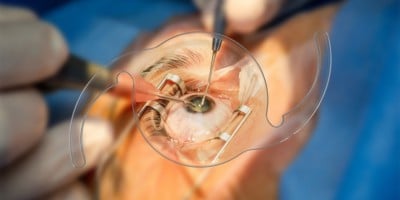BREAKING: A groundbreaking study has just announced that office-based cataract surgery using oral sedation may revolutionize the way this common procedure is performed. The study, published today in a leading medical journal, reveals that 89% of patients reported high satisfaction levels with the new method, marking a significant shift in cataract surgery practices.
This urgent update is a game-changer for the estimated 24 million people in the United States who suffer from cataracts. Traditionally performed in hospitals, this new approach allows patients to undergo the surgery in a familiar office setting, significantly reducing stress and wait times.
Researchers found that patients experienced less anxiety and quicker recovery times when the procedure was conducted in an office, compared to the conventional hospital environment. Dr. Emily Nguyen, a lead researcher from the University of California, stated,
“Our findings suggest that this method not only improves patient experience but also enhances surgical efficiency.”
The study, conducted between September 2023 and January 2024, involved over 500 participants across various locations in the United States. The results indicate a potential shift in cataract surgery protocols, allowing more patients access to necessary care without the burdens of hospital stays.
This development matters now more than ever, as healthcare systems continue to seek ways to improve patient outcomes while managing costs. The convenience of office-based procedures could lead to a significant increase in surgery availability, directly impacting patient care and satisfaction.
Next steps involve further clinical trials to confirm these findings and assess long-term outcomes. Healthcare professionals are urged to stay informed about these developments, as this may soon become the standard approach for cataract surgeries.
With the promise of improved patient experiences and operational efficiencies, this study is set to reshape the landscape of cataract surgery. Patients and healthcare providers alike are encouraged to follow these developments closely, as the potential for change is on the horizon.
Stay tuned for more updates as this story unfolds, and consider sharing this vital information with others who may benefit from understanding the future of cataract surgery.






